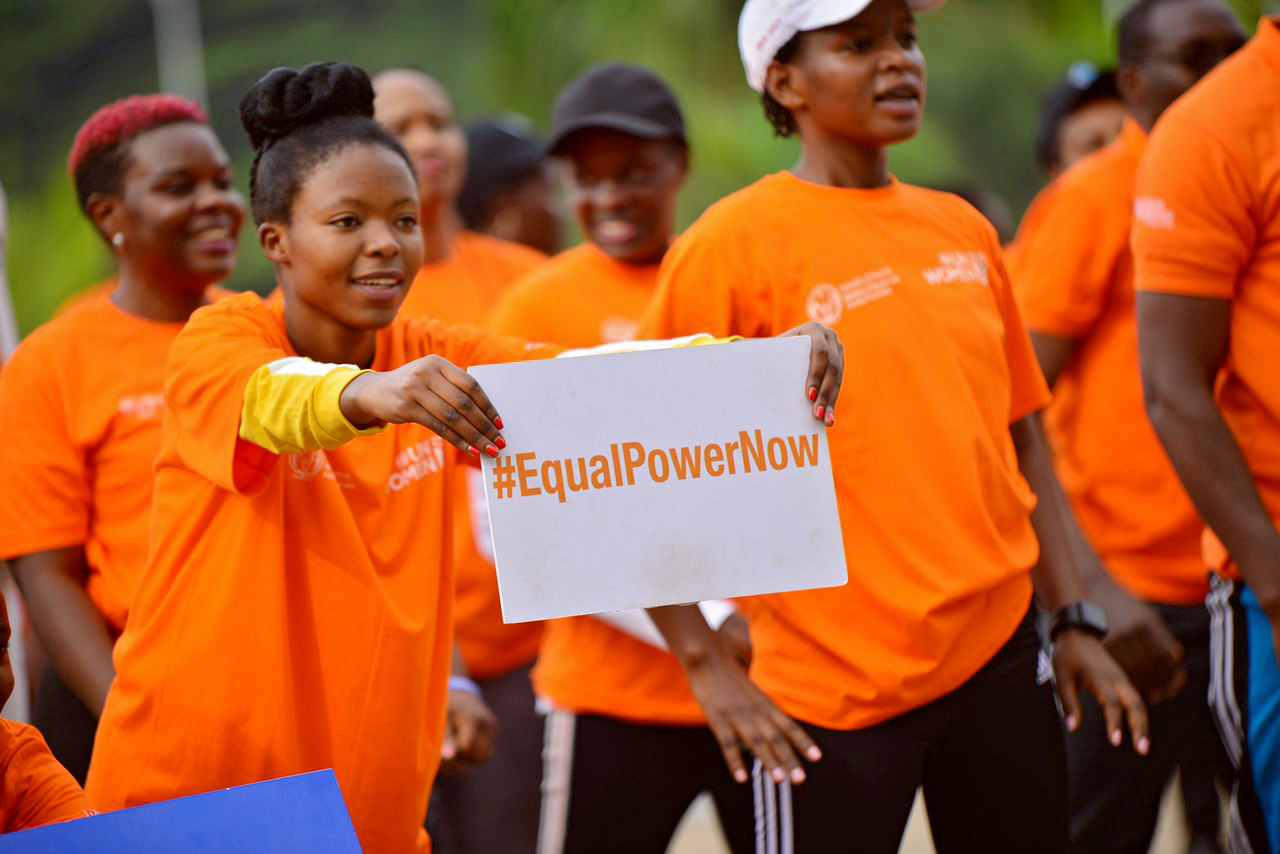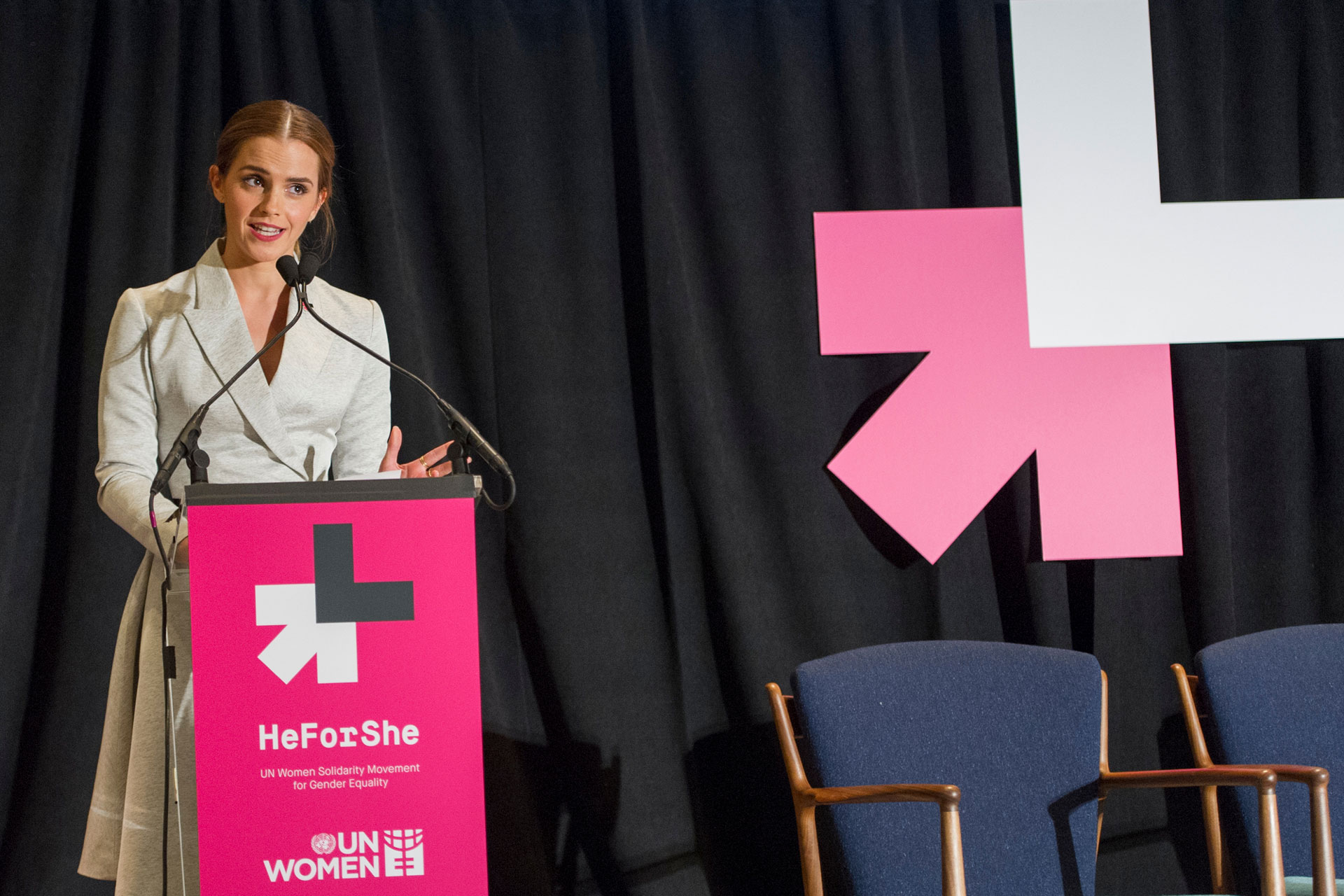
Activists participate in the ‘Car Free Day Sports activities’ in commemoration of 16 Days of Activism which was organized by the Ministry of Gender and Family Promotion and City of Kigali.
However, gender inequality remains deeply entrenched everywhere and impedes social progress. Women and girls are too often denied access to education, health care and employment, they fall victim to violence and discrimination and are under-represented in decision-making processes.
"Gender inequality is the overwhelming injustice of our age and the biggest human rights challenge we face" — UN Secretary-General Antonio Guterres
The United Nations support for the rights of women began with the Organization's founding Charter, signed in 1945, which was the first international agreement to assert the principle of gender equality.
Within the UN’s first year, the Economic and Social Council established its Commission on the Status of Women, as the principal global policy-making body dedicated exclusively to gender equality and advancement of women. Among its earliest accomplishments was ensuring gender neutral language in the draft Universal Declaration of Human Rights.
Over many decades, the United Nations has made significant progress in advancing gender equality and is working for the empowerment and rights of women and girls globally.
Gender Equality was made part of international human rights law by the Universal Declaration of Human Rights, which was adopted by the UN General Assembly on 10 December 1948. That milestone document in the history of human rights recognized that: “All human beings are born free and equal in dignity and rights” and that “everyone is entitled to all the rights and freedoms set forth in this Declaration, without distinction of any kind, such as race, colour, sex, language, religion, … birth or other status.”
At the heart of the United Nations’ work to achieve gender equality lies UN Women. The United Nations Entity for Gender Equality and the Empowerment of Women was created in 2010 by the United Nations General Assembly, bringing together the work of the UN system. UN Women supports the Commission on the Status of Women, the principal global intergovernmental body dedicated to the promotion of gender equality and the empowerment of women, which formulates policies, global standards and norms. Furthermore, UN Women assists Member States to implement these standards and leads and coordinates the UN system’s work on gender equality. It also promotes accountability.
Created by UN Women, the innovative He-For-She campaign is a solidarity movement for gender equality. It invites men and boys to act for a more equal world and for people to stand together as equal partners to craft a shared vision of a gender-equal world and implement specific, locally relevant solutions.
“We live in a male-dominated world with a male-dominated culture, and that is still true in the United Nations. Men have been in charge for millennia. Changing attitudes is one of the most important and difficult challenges,” Secretary-General António Guterres said in a speech celebrating women leaders in the United Nations.
"Gender equality is a means of redefining and transforming power that will yield benefits for all. It is time to stop trying to change women, and to start changing the systems and power imbalances that prevent them from achieving their potential." - UN Secretary General António Guterres, 2020 International Women's Day
In UN peacekeeping, special emphasis is given to the empowerment of women to participate in peace processes and advocate for their inclusion in political and electoral systems. In addition, consideration of the different challenges that women and men face in conflict and post-conflict situations is an integral part of UN operations.

British Actor and UN Women Goodwill Ambassador Emma Watson co-hosts a special event organized by the United Nations Entity for Gender Equality and the Empowerment of Women (UN Women) in support of their HeForShe campaign.
International Women's Day is celebrated in many countries around the world. It is a day when women are recognized for their achievements without regard to divisions, whether national, ethnic, linguistic, cultural, economic or political.
Women leaders and women’s organizations have demonstrated their skills and knowledge in all fields of work, from the local to the global level. Women bring different experiences, perspectives and skills to the table, and make irreplaceable contributions to decisions, policies and laws that work better for all. Yet, women’s leadership and political participation are restricted. This occurs despite their proven abilities as leaders and agents of change, and their right to participate equally in democratic governance. Individual women have overcome these obstacles with great acclaim, and often to the benefit of society at large. But for women as a whole, the playing field needs to be level, opening opportunities for all.
The United Nations Information Service (UNIS) Vienna, in collaboration with the United Nations Industrial Development Organization (UNIDO), screened the documentary “She Rises Up” at the Top Kino Cinema. The film reveals the role entrepreneurs and small businesses can play in women gaining financial independence and ultimately reducing poverty for all.
"When the doors of equal opportunity are open for women and girls, everyone wins. Equal societies are more prosperous and peaceful – and the foundation of sustainable development." — António Guterres
"Ten years ago, the first International Day of Women and Girls in Science recognized a fundamental truth: women's participation is essential for building a better world through science and technology." — António Guterres
In collaboration with the Embassy of Sweden to Austria and UN Women Austria, the United Nations Information Service (UNIS) Vienna joined the global Orange the World Campaign 2024 dedicated to raising awareness and taking action to end gender-based violence.